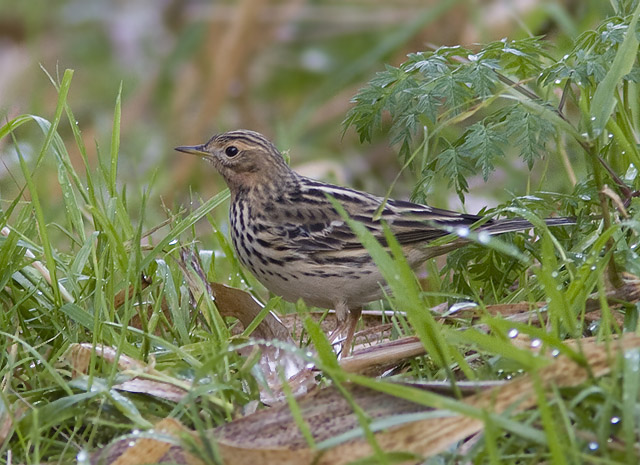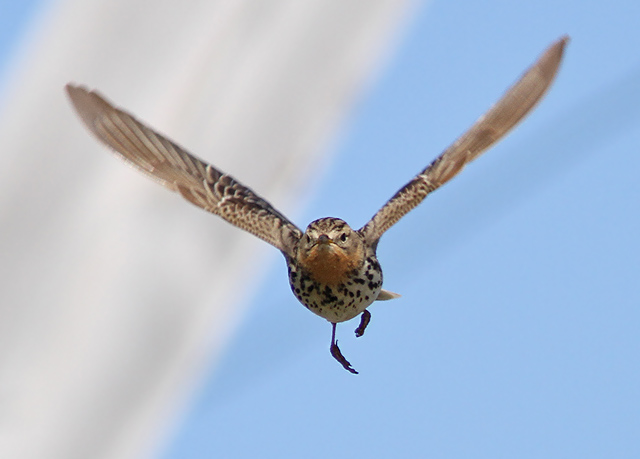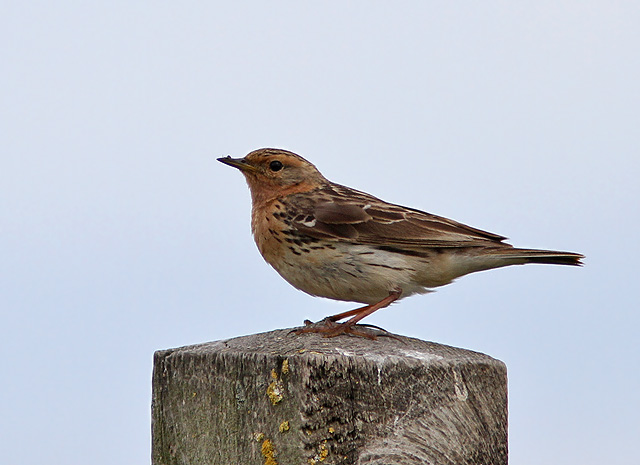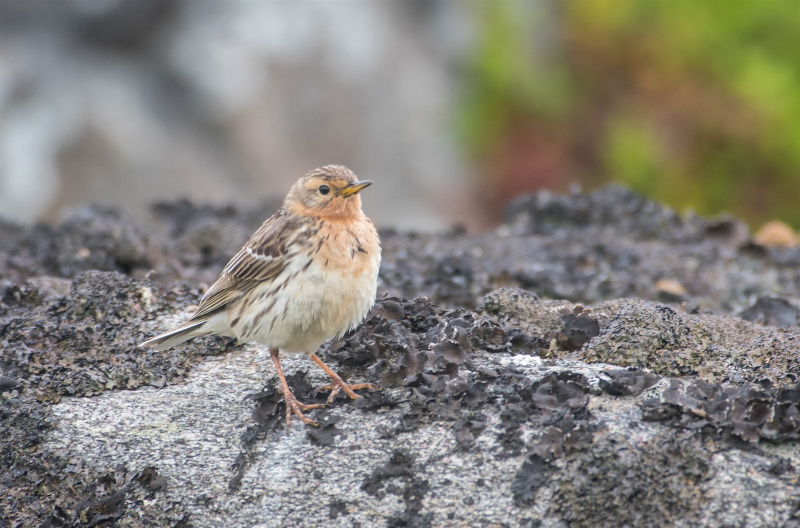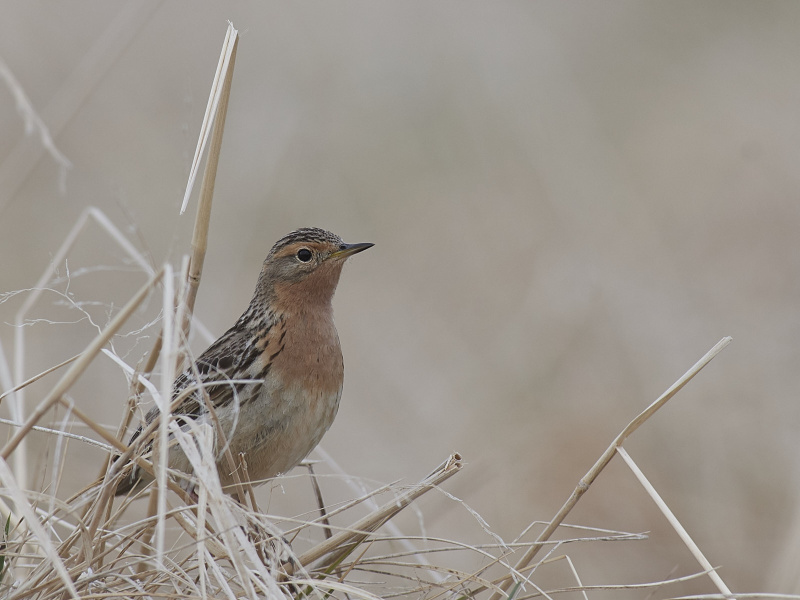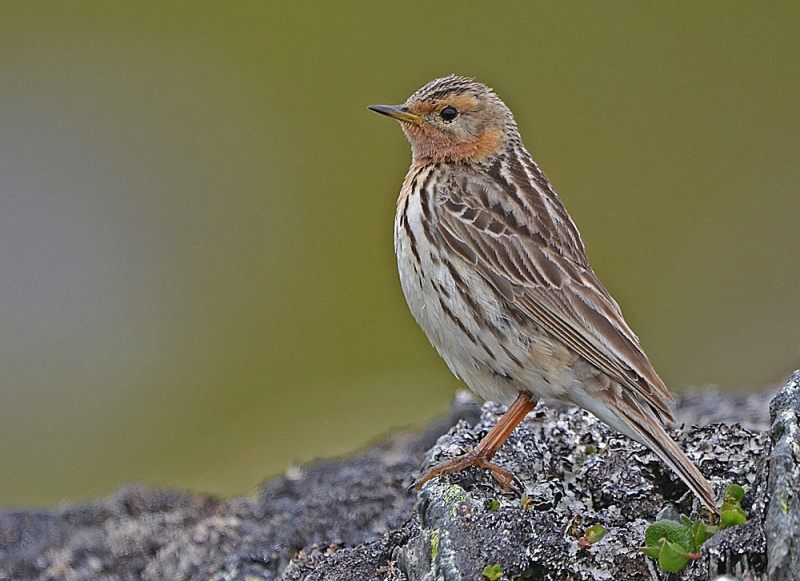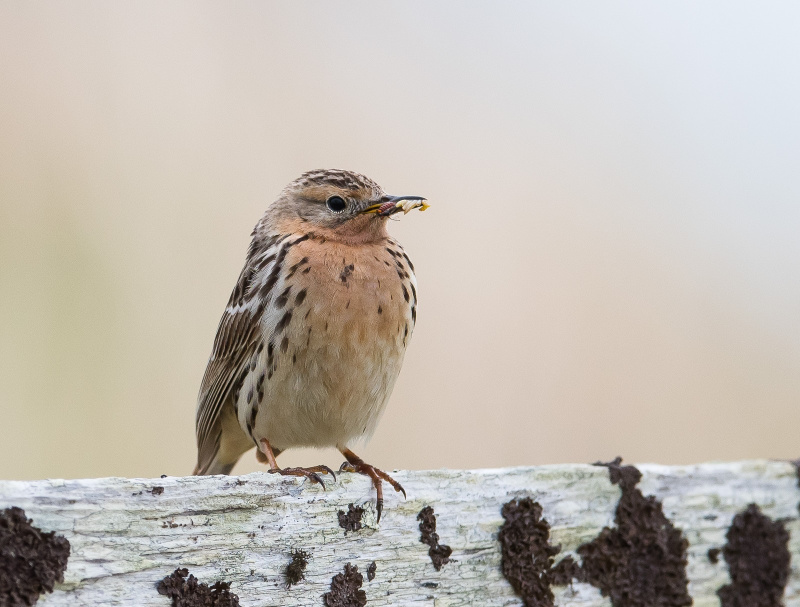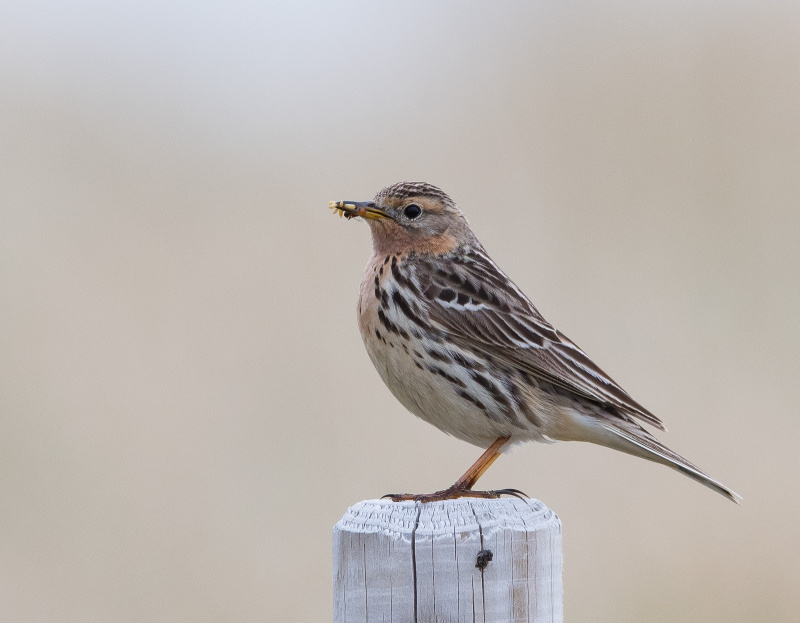Scottish Crossbill (Loxia scotica)
Red-throated Pipit (Anthus cervinus)
Only in the UK. Similar to Red and Parrot Crossbill in plumage. Bill size possibly the only visual identification clue, but even this overlaps with the other two species. Bill is usually deeper and heavier than Red Crossbill. Certain separation from Parrot Crossbill in the field by visual characters alone, probably not possible. Species status mainly upheld by isolated breeding population and differences in excitement calls from other crossbills. Calls probably play an important role in maintaining the reproduction barrier between Crossbill populations with different bill-size. See Birdlife link below for more info.
Sound:Calls very similar to Parrot Crossbill, and sonogram analysis may be needed for certain identification. Flight and excitement calls show most unique quality. Sonogram image above by Ron Summers (used with permission). A detailed article about crossbill calls can be found here.
Distribution:Xeno-canto: map
Ecology:Birdlife ecology
Links:
Observation.org Latest observations
Image search Flickr NB! May give other species
CCCollage photo By Richard Crossley (The Crossley ID Guide Britain and Ireland) [CC BY-SA 3.0 (http://creativecommons.org/licenses/by-sa/3.0)], via Wikimedia Commons.
Pipit with distinctly streaked breast and flanks. Adults with rich rusty red coloured throat, breast and supercilium. Males usually more red than females. Easily confused with other pipits when in winter- and juvenile plumage. Characterised by two whitish stripes on back, heavily streaked rump and flight call.
Sound:Most typical call a forced, drawn, slightly descending "zziiiieeet", with an accented ending. Other calls resembling Meadow Pipit. Song: Like a mix of Meadow Pipit and Tree Pipit, with typical staccato, and uneven rhythm (extra "beats").
Flight call:
Distribution:
Wikipedia: map (se also Xeno-canto below)
Ecology:Birdlife ecology
Links:
Observation.org Latest observations
Image search Flickr NB! May give other species
CC
 English
English Albanian
Albanian
 Armenian
Armenian
 Bulgarian
Bulgarian
 Catalan
Catalan
 Croatian
Croatian
 Czech
Czech
 Danish
Danish
 Dutch
Dutch
 Finnish
Finnish
 French
French
 Georgian
Georgian
 German
German
 Greek
Greek
 Hungarian
Hungarian
 Italian
Italian
 Latvian
Latvian
 Lithuanian
Lithuanian
 Macedonian
Macedonian
 Norwegian
Norwegian
 Polish
Polish
 Portuguese
Portuguese
 Romanian
Romanian
 Russian
Russian
 Sami : Lule sami
Sami : Lule sami
 Sami : North sami
Sami : North sami
 Sami : South sami
Sami : South sami
 Scientific names
Scientific names
 Serbian
Serbian
 Spanish
Spanish
 Swedish
Swedish
 Ukrainian
Ukrainian


